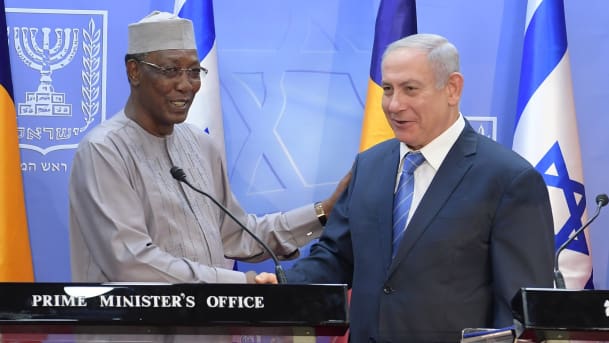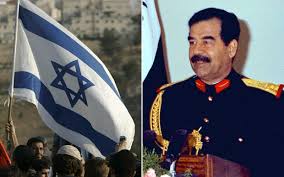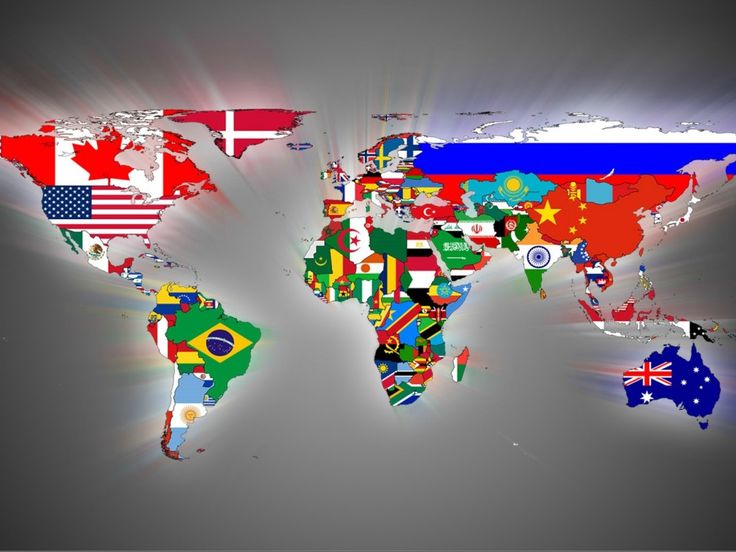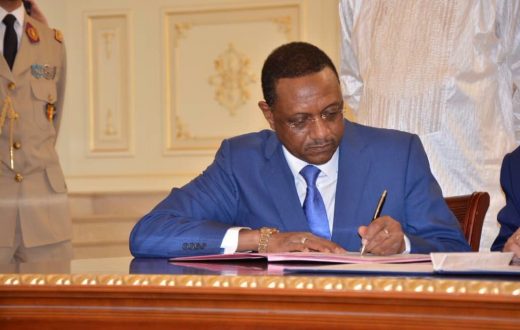N’Djamena – Israeli Prime Minister Benjamin Netanyahu arrived in N’Djamena this morning of January 20, 2019. It is the first visit by an Israeli authority to Chad since the breakup of diplomatic relations in 1972. A visit Netanyahu described as a “historic breakthrough” in this Central African country with a Muslim majority with which Israel is preparing to resume relations.
The Arab-Israeli wars
It seems to be obvious that diplomatic ties with Africa is one of Netanyahu’s central foreign policy strategy, as this is his fourth visit to the African continent since July 2016, he formerly visited Liberia in June 2017 and Kenya for the swearing in of President Uhuru Kenyatta.
The pressure of African Muslim nations, accentuated by the Arab-Israeli conflicts of 1967 and 1973, led a number of African states to break with the Jewish state. However, this trip follows by just two months Idriss Déby’s visit to Jerusalem came to turn the page and open a new chapter for the two nations as Israel has offered opportunities for cooperation in areas ranging from security to technology, military equipments and agriculture to develop its relations on the African continent – in recent years.
The Chadian President Idriss Deby said during his historic visit to Israel earlier that “the cutting of diplomatic ties in the 1970s did not prevent good relations” between the two nations, though renewed ties will not remove the Palestinian problem.
It’s obvious that Deby’s official visit to Jerusalem is mainly focused on security issues, as Israel has already supplied the Chadian government with weaponry and other equipment; according to some sources.
Chad is one of the African states engaged in the fight against Boko Haram and some terror organizations in West Africa and the Sahel strip. In November, it received military vehicles and ships worth $1.3 million (approximately €1.15 million) from the United States, Israel’s major ally.
Mutual interests
“Chad is a very important country in Africa, and a very important country for Israel, I am happy we are resuming our friendship” Netanyahu said
Of course Chad holds strategic significance for Israel since it is a Muslim-majority state that borders Libya and Sudan. Ties with this central African country could afford Israel the opportunity to monitor any operation in Africa, and particularly; what is moving south out of Libya – a major breeding ground for terrorism that includes ISIS, Boko Haram, a-Qaeda or any futuristic terror threats.
On the other hand, as Chad is a poor landlocked country; Israel can help it face its major problems, from agriculture, water scarcity to securing its borders and dealing with the threat of Islamic terrorism.
Public discourse or strategic game?
It is worth mentioning that the 54 African states make up an important bloc in the 193-state UN; as most of the African states reflexively vote against Israel on every UN vote, therefore, the Jewish state needs their voices to balance the voices in the U.N. Chad which historically used to vote against Israel at the UN – did not vote on a measure in December condemning Hamas, the country would definitely have voted against in the past years.
There is absolutely a strategic benefit to Israel in ties with Chad, as the country borders Sudan, Libya and Central African Republic, which is giving Israel better capability of monitoring developments in all those countries. Meanwhile, Chad also needs Israel in border security surveillance, as protecting the country’s northern border is vital to its national security for the moment.
Even though both of the countries need each other as strategic partners, however, Netanyahu meeting Chadian President Deby in N’Djamena today may just be a reason to feature in the elections campaign as Netanyahu will underline the strong relations Israel has forged during his tenure with China, India, Latin America and Africa.
By Idriss Zackaria








